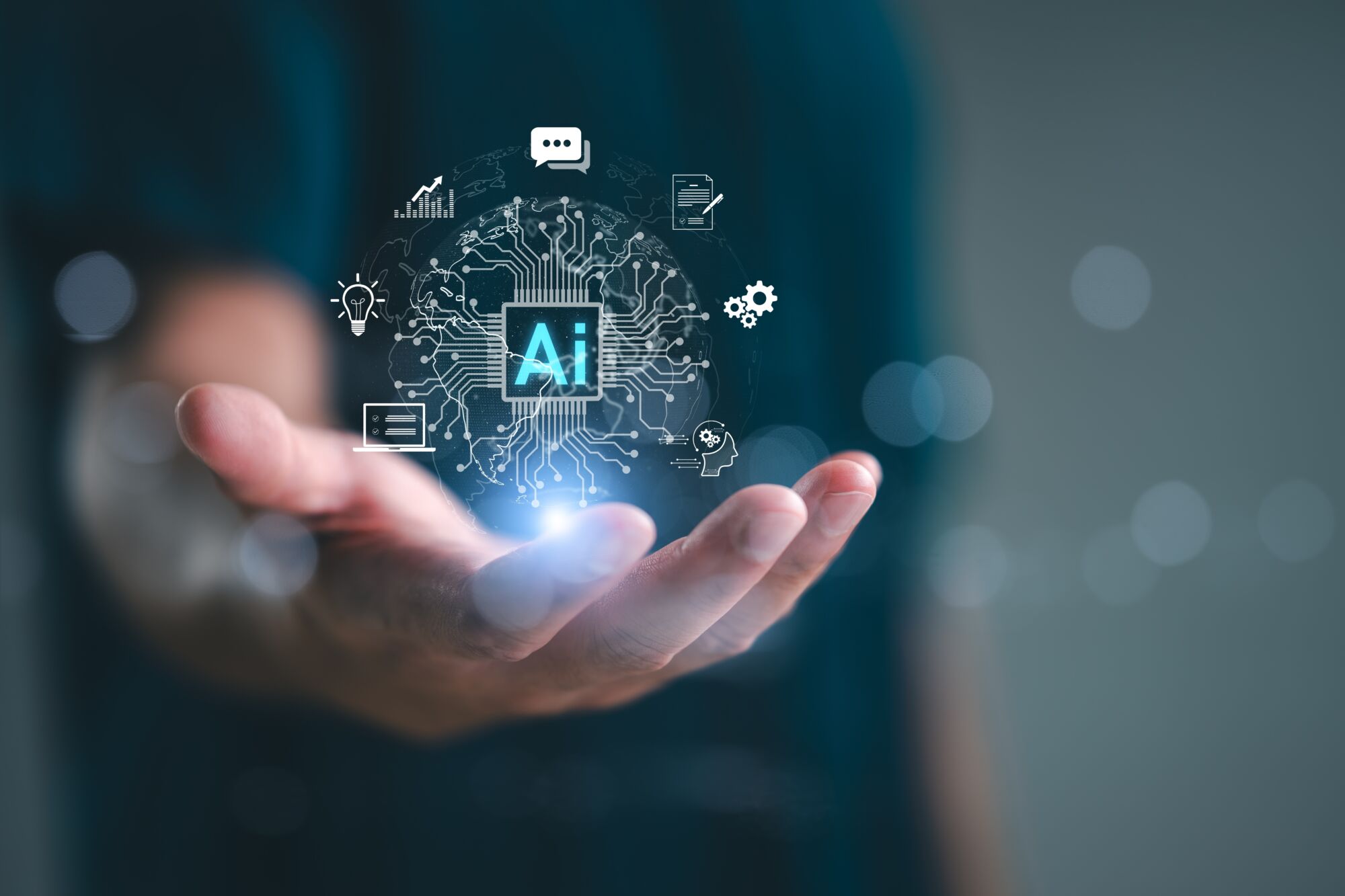
Artificial Intelligence, also referred to as AI, is changing the face of different industries, including healthcare, finance, education, entertainment, and more. One of the most significant impacts of AI is on digital marketing. It is transforming the way businesses connect with their customers. While AI offers immense opportunities for marketers, it also raises questions about how to use it to benefit both businesses and consumers. In this article, we will discuss the advantages and disadvantages of AI, as well as address the challenging questions it poses.
The Benefits of AI in Digital Marketing:
Improved Targeting through Data: One of the primary benefits of AI in digital marketing is its ability to analyze data. With AI-powered tools such as chatGPT, Google Bard, DALL-E, and many more, marketers can quickly analyze vast amounts of data, identify patterns and trends, and gain insights into customer behavior. This could lead to AI-powered tools identifying user behaviors that might otherwise go unnoticed. Applying this data enables businesses to create more targeted and personalized marketing campaigns, leading to increased engagement, loyalty, and sales.
Increased Efficiency: AI is a powerful tool that can automate various tasks. For instance, it can help schedule social media posts at the most optimal times to reach a target audience or quickly edit video content for an upcoming marketing campaign. AI can also rapidly evaluate ad performance data, providing valuable insights into the success of marketing campaigns. This information can be used to make data-driven decisions and optimize future campaigns, ultimately leading to better results.
Improved Lead Generation: By using various AI tools to decipher customer preferences, interests, and needs, AI-powered tools can help businesses develop targeted marketing strategies that are tailored to specific audiences. This can lead to more qualified leads and ultimately, higher conversion rates.
Competitive Advantage: With a wide array of AI tools at their disposal, companies can create unique and attention-grabbing marketing campaigns. AI’s ability to provide deeper insights into customer behavior and automate routine tasks allows businesses to enhance their competitive edge in a dynamic online environment. Harnessing the power of AI in digital marketing not only helps businesses gain a competitive advantage, but also allows them to stay agile and responsive to rapidly changing market conditions. This adaptability is crucial in today’s fast-paced digital landscape.
Potential Concerns about the use of AI in Digital Marketing:
Privacy: As AI-powered tools collect vast amounts of data about customers, there is a risk that this data could be misused or even stolen by hackers. This puts businesses in a difficult position regarding balancing the benefits of AI with the need to protect their customers’ privacy.
Jobs: Another concern with AI in digital marketing is its potential impact on jobs. As AI-powered tools become more sophisticated, there is a risk that they could replace human workers. This potential scenario may bring about enhanced operational efficiency and reduced business expenditures, but it also harbors the risk of job displacement, lack of employee engagement, and the potential for economic turmoil.
Accountability: It is no secret that the integration of AI in digital marketing raises accountability issues. It can be challenging to pinpoint responsibility for errors or oversights originating from AI-driven systems. Recently, ChatGPT has added a disclaimer at the bottom of each conversation with a user. The disclaimer reads, “ChatGPT can make mistakes. Consider checking important information.” This is an effort to acknowledge that the AI-powered assistant is not infallible and to encourage users to verify important information. However, such ambiguity can lead to confusion when trying to establish legitimacy and overall user trust if there are discrepancies in their responses. This raises the question of if a user makes a mistake based on data or responses from AI, who do you hold accountable?
Over-reliance: With the increasing use of AI in digital marketing, there is a risk of over-reliance on machine-generated solutions. While AI can be a powerful tool to optimize marketing strategies, it may also lead to a reduction in human creativity and innovation. This can ultimately limit the effectiveness of marketing campaigns, as a lack of human input may result in a lack of originality and uniqueness. Therefore, it is important to strike a balance between the use of AI and human expertise to ensure the success of digital marketing efforts.
Should businesses continue to use AI?
Despite these concerns, the benefits of AI in digital marketing are too significant to ignore. As AI-powered tools become more accessible, businesses must find ways to use them in a way that benefits both the business and its customers. Being transparent about data collection and utilization, and ensuring AI serves to complement and amplify human capabilities instead of substituting them, is essential.
The AI dilemma in digital marketing is a complex issue that requires careful consideration. While AI presents enormous opportunities for businesses, it also creates new challenges that need to be addressed. By finding ways to use AI responsibly and ethically, businesses can harness the power of this technology to create more effective and personalized marketing campaigns, while also protecting their customers’ privacy, ensuring trust, and emphasizing that jobs are not displaced.
NLMarCom is a digital marketing agency with specific expertise in executive search, finance, consulting, and professional services firms. We specialize in business-to-business marketing strategies and business growth solutions. Our clients benefit from our consulting, design, and delivery solutions including marketing strategy, brand, web, inbound marketing, and outbound marketing. To learn more about how NLMarCom can help you drive results, contact us.



